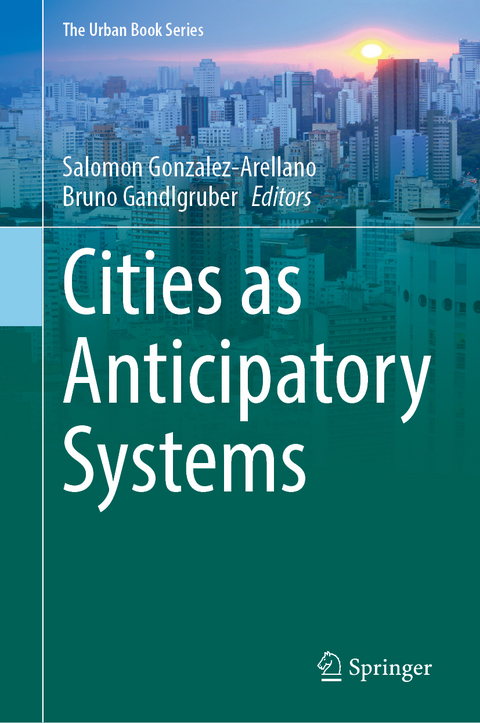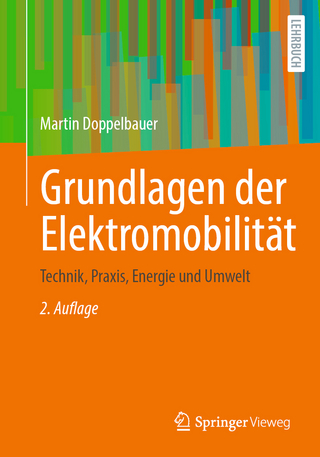
Cities as Anticipatory Systems
Springer International Publishing (Verlag)
978-3-031-78161-2 (ISBN)
- Noch nicht erschienen - erscheint am 25.03.2025
- Versandkostenfrei
- Auch auf Rechnung
- Artikel merken
The theory of anticipation suggests that systems, both biological and social, can adapt and update based on predictive models. Cities, which can be seen as complex systems that are associated with innovation, are undergoing changes in response to current socio-ecological transitions. Therefore, cities can be viewed as anticipatory systems that may signal future transformations that arise in response to the challenges posed by these ongoing socio-ecological transitions.
This book combines futures studies and anticipation theories with urban studies and theories of urban transition. Chapters address theoretical and empirical aspects of both fields and present case studies from a wide array of international perspectives. These diverse examples demonstrate how cities implement arrangements and strategies to allow their actors of all kinds to anticipate change. As such, contributions in this edited volume explore possible scenarios and proposals for strengthening anticipatory competences in urban areas and examine the potential consequences of these innovations in the cities of the future.
Salomón González-Arellano is an architect and holds a Ph.D. in Urban and Regional Planning, Universidad Laval, Quebec, Canada. He is currently a research professor in the Department of Social Sciences at UAM Unidad Cuajimalpa in Mexico City. He is a founding member of the Laboratorio de Análisis Socioterritorial and a member of the Sistema Nacional de Investigadores since 2006. Dr. Salomón has been a master's and doctoral thesis advisor on issues of segregation, urban form, public space, mobility, urban food systems, and recently on space time urban analysis and anticipatory urban systems. His research addresses topics such as urban morphology, segregation, accessibility, and mobility. He is also a specialist in spatio-temporal representation and analysis, especially in relation to the differentiation of urban space in Mexico, and methods for decision making from the perspective of Territorial Intelligence.
Bruno Gandlgruber is a professor for Economics at the Department of Institutional Studies at the Cuajimalpa Campus of the Universidad Autónoma Metropolitana in Mexico City. His current academic activities are related to the comparative institutional analysis of development processes, particularly the emergence and transformation of economic models and the role of informality and firm governance in economic development. He has been invited as a visiting scholar to Ruhr-University Bochum, Passau University, Turkish-German University (Istanbul, Turkey), and Technical University Berlin (Campus El Gouna, Egypt). As a consultant for the ECLAC/UN, he has developed projects on market governance in Central America. His research has been published by Palgrave and other international publishers and reviews. He is also an associate editor of the newly founded Review of Evolutionary Political Economy. Recently, Bruno Gandlgruber is in charge of the UNESCO Chair in Future Studies, anticipation and urban lifestyles in the global south.
Introduction.- Futures and urban transitions: Building urban anticipatory systems in the global south.- Part I: Theoretical and empirical perspectives on urban anticipatory systems.- Cities as anticipatory systems.- Part II: Empirical cases: Cities as anticipatory systems.- Anticipatory action and future urban living: An analysis of the Barcelona Climate Shelter Network.- Recife and the anticipation of extreme weather events - Pathways to advance climate justice.- Sustainable urban mobility as an anticipatory response to climate change: The case of the metro in the Metropolitan District of Quito.- Imagining a future free from asbestos: Reflections from hope and despair, challenges in urban eco-sanitary transition.- Anticipating inclusive urban health systems in Delhi.- Navigating the interregnum through the thick now - Food as a lens to engage the unknown urban future in Cape Town.- Analyzing the future images of urban food within three mushroom-based cuisine restaurants in Mexico City.- Anticipating risk: The case of floods and earthquakes in Mexico city.- Part III: Building urban anticipatory systems.- Urban anticipation systems for plastic waste management: Responsiveness to a dystopian future.- Hopeful determination as an urban anticipatory system.- Sustainability of life and care in the Metropolitan Area of Buenos Aires, Argentina: Feminism and anticipation.- Urban anticipación and security.- Anticipating the future of Iranian cities: High-tech vs. nature-based solutions.- Conclusion.
| Erscheint lt. Verlag | 25.3.2025 |
|---|---|
| Reihe/Serie | The Urban Book Series |
| Zusatzinfo | XIV, 214 p. 21 illus., 18 illus. in color. |
| Verlagsort | Cham |
| Sprache | englisch |
| Maße | 155 x 235 mm |
| Themenwelt | Naturwissenschaften ► Biologie ► Ökologie / Naturschutz |
| Naturwissenschaften ► Geowissenschaften ► Geografie / Kartografie | |
| Technik ► Architektur | |
| Schlagworte | Anticipatory Systems • Asbestos • Cities • citizen participation • climate change • climate justice • decarbonization • dystopian future • Feminism • Innovation • Plastic Waste Management • Resilience • risk mitigation • Socioecological Transformation • Sustainable urban mobility • Urban Adaptation • Urban Food Systems • Urban Futures • Urban Regeneration • urban South |
| ISBN-10 | 3-031-78161-9 / 3031781619 |
| ISBN-13 | 978-3-031-78161-2 / 9783031781612 |
| Zustand | Neuware |
| Informationen gemäß Produktsicherheitsverordnung (GPSR) | |
| Haben Sie eine Frage zum Produkt? |
aus dem Bereich


